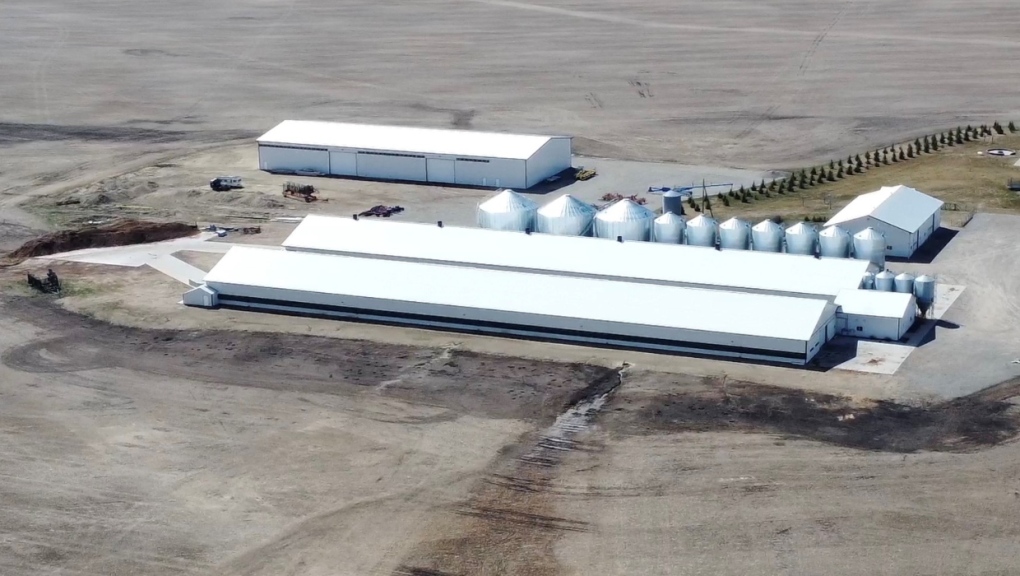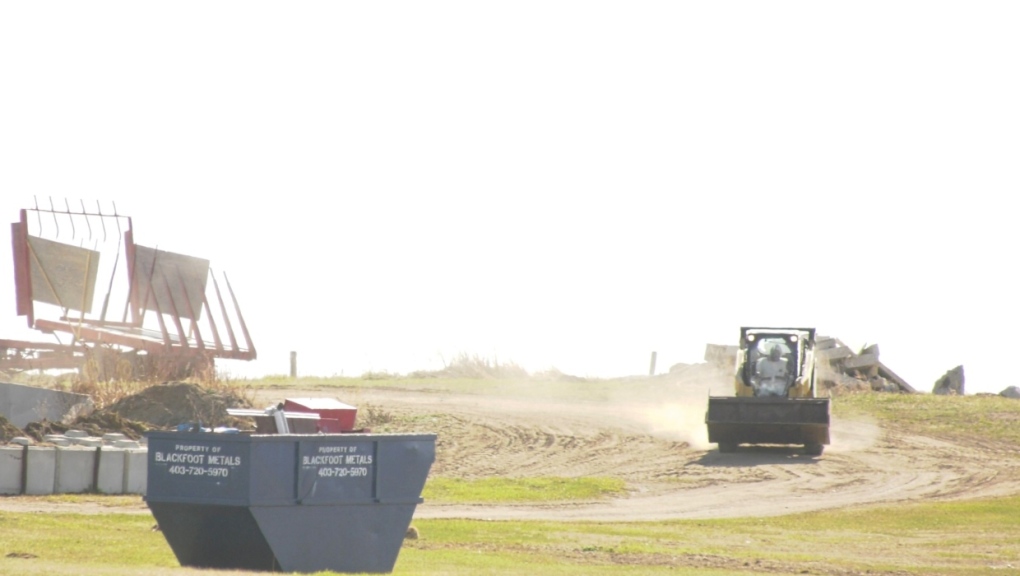Alberta has more cases of avian flu than any other province: CFIA
 A stock photo showing the inside of a hen farm. (Getty Images)
A stock photo showing the inside of a hen farm. (Getty Images)
Alberta has more confirmed cases of bird flu than any other province, according to data collected by the Canadian Food Inspection Agency (CFIA).
As of Tuesday, the CFIA lists 23 flocks in Alberta where avian influenza has been detected, compared to 21 in Ontario, seven in Saskatchewan and just one in Manitoba.
Alberta also has more birds impacted by avian flu than any other province, with the CFIA's most recent data showing an estimated 600,000 birds impacted.
The data on the estimated number of impacted birds is updated every Thursday, and Alberta's already-high estimation will inevitably spike during the next update, as bird flu has been detected in at least four more flocks since the last one.
Across Canada, every province - with the exception of PEI - has had at least one domestic flock infection, leading to an estimated 1,372,400 birds being euthanized, affecting 58 farm businesses.
 A farm east of Didsbury, Alta. identified by the CFIA as having confirmed cases of avian flu.
A farm east of Didsbury, Alta. identified by the CFIA as having confirmed cases of avian flu.
WHAT HAPPENS WHEN AVIAN FLU IS DETECTED?
The CFIA usually takes control of the farm, putting restrictions on who can come and go from the property and placing it under quarantine. CFIA staff and contractors then come in to "depopulate" the birds - suffocating them with either carbon dioxide or in some cases a special water-soluble foam.
Farmers are not responsible for euthanizing the birds, and CFIA also arranges and pays for the carcasses to be buried, composted or burned.
But producers are on the hook for clean up costs associated with washing out barns and disinfecting them, along with tools and equipment that may have been in contact with infected birds.
There is compensation for the loss of the individual animals at market rates.
 Cleanup near Linden, Alta. in May after avian flu was detected. (file)Affected farmers contacted by CTV News declined to speak about their experience, directing inquiries to the Alberta Chicken Producers and Egg Farmers of Alberta. Both associations say interviews are not possible at this time.
Cleanup near Linden, Alta. in May after avian flu was detected. (file)Affected farmers contacted by CTV News declined to speak about their experience, directing inquiries to the Alberta Chicken Producers and Egg Farmers of Alberta. Both associations say interviews are not possible at this time.
Avian influenza is commonly carried by wild migratory birds, especially waterfowl. According to Alberta's wildlife disease specialist Dr. Margo Pybus this year's infections appear to be more widespread and causing more severe symptoms, including disorientation and head tremors.
Wild birds normally show little sign of infection. The outbreaks are expected to subside as migration wraps up in June.
The CFIA says avian flu is not a food safety concern, and there is no evidence to suggest that eating cooked poultry or eggs can transmit it to humans.
CTVNews.ca Top Stories

Trudeau asked Trump for California, Vermont to curb annexation talks
Justin Trudeau says U.S. president-elect Donald Trump kicked the tires on the potential annexation of Canada during their recent meeting in Florida, but the topic was quickly dropped when the prime minister countered with a request for two states.
Man dies after falling into sink hole at Fernie Alpine Resort
An investigation is underway by Elk Valley RCMP after a man died Wednesday after falling into a sink hole at Fernie Alpine Resort.
One Alberta man gets jail, another community time for 2022 Coutts border protest
Two Alberta men have been sentenced for their roles in the illegal Coutts border blockade in 2022.
Liberal leadership: Carney expected to launch bid next week, Clark organizing heavily, Gould considers entering
While longtime cabinet ministers Dominic LeBlanc and Melanie Joly have officially announced they have no plans to run for the Liberal leadership, several well-known faces are organizing behind the scenes to launch bids of their own.
Amid tense backdrop, Canadian warship gets friendly message from Chinese vessel tracking movements
Daybreak on HMCS Ottawa began with a call over the marine radio from a Chinese warship. The call is coming from a Chinese Frigate known as the Yuncheng, the warship has been shadowing HMCS Ottawa through the South China Sea for two days and counting.
'Everything is gone': Sask. business owner loses Los Angeles home to wildfires
A Saskatchewan business owner lost her Los Angeles home as wildfires ravage parts of the city.
Trump gets no-penalty sentence in his hush money case, while calling it 'despicable'
U.S. president-elect Donald Trump was sentenced Friday to no punishment in his historic hush money case, a judgment that lets him return to the White House unencumbered by the threat of a jail term or a fine.
'Devastating beyond words': Paris Hilton shows remnants of home destroyed by L.A. fire
Socialite Paris Hilton shared a video showing her ravaged house, destroyed by the L.A. wildfires., 'I’m standing here in what used to be our home, and the heartbreak is truly indescribable,' Hilton wrote on Instagram.
School software hack hits school boards across six Canadian provinces
School boards across Canada are grappling with the fallout from a significant cyberattack on PowerSchool, a widely used administration software platform.

































